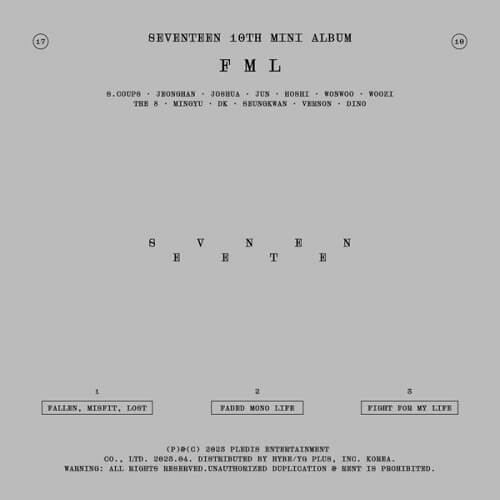내가 meaning in english
“내가”는 한국어에서 일반적으로 사용되는 표현 중 하나로, 영어로는 “I” 또는 “me”로 번역되는 경우가 많습니다. 하지만 “내가”는 단순히 일반적인 인칭 대명사로만 쓰이는 것은 아니며, 다양한 형태와 문법적 용도를 가지고 있습니다. 이번 기사에서는 “내가”의 주요 뜻과 사용 예시, 그리고 다른 표현들과의 비교 등을 살펴보겠습니다.
“내가”의 형태와 문법적 용도
“내가”는 “나”에게 소유격 조사 “의”가 결합한 형태로 사용됩니다. 이는 ‘나의’, ‘my’로 번역될 수 있습니다. “내가”는 공식 문서나 포멀한 상황에서는 사용되지 않고, 주로 일상적인 대화나 글에서 많이 사용됩니다.
“내가”는 주로 주어로써 사용되는데, 이 경우 주로 동사 뒤에 위치합니다. 일반적으로는 문장의 맨 처음에 주어가 나오는 것이 영어와 차이가 있습니다.
“내가”의 주요 뜻과 사용 예시
주어로서의 “내가”
“내가”는 문장에서 주어로 사용되어 주로 자신이나 자신의 행동을 나타내는 뜻으로 쓰입니다. 예를 들어, “내가 수영을 좋아해”는 “I like swimming”으로 번역될 수 있습니다. 또한 “내가 어제 봤던 영화는 정말 재미있었어”는 “The movie I saw yesterday was really interesting”로 번역될 수 있습니다.
소유격으로서의 “내가”
“내가”는 또한 소유격으로 사용되는데, 자신의 것을 나타내는 뜻으로 씁니다. 예를 들어, “내가 새로 산 자전거”는 “my newly bought bike”로 번역될 수 있습니다.
“내가”의 부가적 용도와 함의
“내가”는 주어나 소유격으로만 사용되는 것은 아닙니다. 이 표현은 대화에서 강조하는 용도로도 사용될 수 있습니다. 예를 들어, “내가 직접 해볼게요!”는 “I will do it myself!”로 번역될 수 있습니다. 이 경우 “내가”는 확실하게 자신의 행동이나 소유권을 강조하는 역할을 합니다.
관용적 표현에서의 “내가”
또한 “내가”는 몇 가지 관용적인 표현에서 사용되는데, 이 경우에는 세부적인 의미나 번역이 다를 수 있습니다. “내가 실수를 했어”는 “It’s my fault”로 번역될 수 있으며, “내가 그걸 잘 몰랐어”는 “I didn’t know that”로 번역될 수 있습니다.
“나는”과의 비교
“나는”은 “내가”와 마찬가지로 “I” 또는 “me”로 번역되는 경우가 많지만, 그 사용법과 뉘앙스는 다소 다릅니다. “내가”는 자기 자신에 대한 주장이나 강조, 혹은 자신의 일상적인 행동을 나타내는 역할을 할 때 사용됩니다. 반면에 “나는”은 단순히 자기 자신을 소개하거나 이야기할 때 사용됩니다. 예를 들어, “나는 남자입니다”는 “I am a man”으로 번역될 수 있으며, “나는 매일 운동해”는 “I exercise every day”로 번역될 수 있습니다.
“내가”를 영어로 어떻게 번역할까?
“내가”를 영어로 정확히 번역하는 것은 어려운 일입니다. 대부분의 경우 “I” 또는 “me”로 번역될 수 있지만, 문맥에 따라 다른 표현을 사용하기도 합니다. 예를 들어, “내가 잘못했어”는 “It’s my fault”로 번역될 수 있습니다. 따라서, “내가”를 영어로 번역할 때는 문맥을 고려하여 적절한 표현을 선택해야 합니다.
FAQs:
Q: “니가”와 “내가”의 뜻은 다른가요?
A: 네, “니가”와 “내가”는 다른 뜻을 가지고 있습니다. “니가”는 “you” 또는 “your”로 번역될 수 있으며, “내가”는 “I” 또는 “me”로 번역됩니다.
Q: “내가”를 구글 번역기로 번역하면 무슨 뜻이 나올까요?
A: “내가”를 구글 번역기로 번역하면 “I” 또는 “me”라는 뜻으로 번역됩니다.
Q: “네가”의 뜻은 무엇인가요?
A: “네가”는 “너” 또는 “너의”로 번역될 수 있습니다.
Q: “내가”와 “나는”의 차이점은 무엇인가요?
A: “내가”는 자기 자신에 대한 주장이나 강조, 혹은 자신의 일상적인 행동을 나타내는 역할을 합니다. 반면에 “나는”은 단순히 자기 자신을 소개하거나 이야기할 때 사용됩니다.
Q: “내”의 뜻은 “yes”라고 하던데, 정확한가요?
A: 아니요, “내”는 “yes”라는 뜻이 아닙니다. “내”는 “my” 또는 “mine”으로 번역되는데, 예를 들어 “내 책”은 “my book”으로 번역될 수 있습니다.
Q: “내가 변해”는 어떤 의미인가요?
A: “내가 변해”는 “I have changed”라는 뜻입니다. 이 표현은 자신의 생각이나 태도가 변화했음을 나타내는데 사용됩니다.
사용자가 검색한 키워드: 내가 meaning in english 니가 meaning in english, 내가 google translate, 네가 meaning, 내가 vs 나는, 네 meaning in English, 내가/나는 difference, 내 meaning yes, 내가 변해 meaning
Categories: Top 95 내가 meaning in english
Basic Korean Grammar about 나는, 저는, 내가, 제가 and its nuance compared to an English sentence
여기에서 자세히 보기: tfvp.org
니가 meaning in english
The Korean language is known for its unique grammatical structure and vast vocabulary. Among the various expressions used in day-to-day conversation, “니가” is a commonly heard term. This term carries a specific meaning in English and plays a crucial role in understanding Korean language and culture. In this article, we will delve into the meaning of “니가” in English and explore its usage and context in the Korean language.
“니가” is a pronoun in the Korean language that translates to “you” or “your” in English. It functions as the second-person singular pronoun and is used when referring to someone you have a close relationship with, such as a friend or family member. It is an informal term used in casual conversations, and its proper usage is essential to maintain respectful communication.
To fully grasp the meaning of “니가” in English, it is important to understand the Korean honorific system. Korean has multiple levels of formality, and the choice of pronouns differs based on the level of politeness required. “니가” falls under the informal level, generally used among peers, family, or close friends. In formal situations, other pronouns like “당신” or the person’s title are used to express respect.
Let’s explore some typical situations where “니가” is used:
1. Conversations with Friends: When having friendly conversations, you can use “니가” to refer to your friend. For example, you might say, “니가 오늘 점심을 어떻게 할 거야?” (What are you going to have for lunch today?).
2. Family Dynamics: Within families, “니가” is commonly used to express closeness. For instance, a sibling might say, “니가 어디 있었어?” (Where were you?).
3. Romantic Relationships: “니가” can also be used in intimate relationships. A partner might ask, “니가 나를 얼마나 사랑해?” (How much do you love me?).
While “니가” generally translates to “you” or “your,” it is important to note that the English language does not differentiate between the formal and informal pronouns. Therefore, in English translations, the context of the conversation may determine how “니가” is interpreted.
FAQs:
Q1. Is “니가” considered polite?
“니가” is an informal pronoun used among people of the same age or in close relationships. It is not considered polite in formal situations. Using “니가” with someone who is older or in a position of authority may be considered impolite in Korean culture.
Q2. Can I use “니가” with strangers?
Using “니가” with strangers is generally not recommended, as it may be seen as too familiar or disrespectful. In initial encounters, it is more appropriate to use the person’s name or title.
Q3. How do I determine when to use “니가” versus formal pronouns?
Choosing between “니가” and formal pronouns such as “당신” or the person’s title depends on the level of politeness and familiarity required. If you are unsure, it is safer to use formal pronouns until the other person indicates a preference for a more casual form of address.
Q4. Can “니가” be used in written communication?
While “니가” is primarily used in spoken conversation, it can also be utilized in informal written communication like text messages, emails to close friends, or informal social media interactions.
Q5. Are there other pronouns that can be used instead of “니가”?
Yes, apart from “니가,” there are other informal pronouns like “너” and “너의” that can be used interchangeably depending on the regional dialect or personal preference. It is advisable to be aware of cultural and regional differences in the usage of pronouns.
In conclusion, understanding the meaning of “니가” in English is crucial for effective communication in Korean. It represents an informal pronoun used to refer to someone you have a close relationship with, such as friends, family, or romantic partners. However, it is crucial to be aware of the different levels of formality in Korean and use the appropriate pronouns to ensure respect and politeness. So, the next time you engage in a conversation in Korean, keep in mind the contextual usage of “니가” for smooth and meaningful interactions.
내가 google translate
Have you ever found yourself in need of translating a foreign language? Whether it’s for work, travel, or simply for personal knowledge, the ability to translate languages is invaluable. As someone who constantly finds themselves in situations requiring language translation, I decided to give Google Translate a try in Korean – a language I have been learning for a while now. In this article, I will share my experience using Google Translate and explore its strengths, weaknesses, and common questions people might have.
My Experience Using Google Translate in Korean:
As a language learner, one of the first tools I turn to when I encounter an unfamiliar phrase or sentence is Google Translate. Its user-friendly interface and convenient access make it an attractive option for quick translations. When it came to Korean, however, my experience using Google Translate was a mixed bag.
Strengths of Google Translate:
1. Vocabulary Acquisition: Google Translate excels in providing immediate translations for individual words. It recognizes a vast number of Korean words and offers a range of possible translations, helping language learners to expand their vocabulary.
2. Simple Sentence Translation: For basic, straightforward sentences, Google Translate can produce reasonably accurate translations. This is particularly helpful for understanding simple instructions or getting the gist of a conversation.
3. Integration with Other Google Services: Google Translate can easily be integrated into various Google services, such as Chrome, Docs, and Android devices, making it readily available for instant translations across platforms.
Weaknesses of Google Translate:
1. Contextual Errors: Google Translate often struggles with translating sentences in context. Without a proper understanding of grammar rules and idiomatic expressions, it can produce inaccurate or awkward translations. This is especially true for languages like Korean, which heavily rely on context and honorifics.
2. Incomplete Sentences: Longer or complex sentences can pose a challenge for Google Translate. The translations may be fragmented or lack coherence, resulting in an incomplete understanding of the original text.
3. Cultural Nuances: Language is deeply intertwined with culture, and Google Translate can sometimes overlook cultural nuances. It may not accurately convey the tone, formality, or implied meaning of certain phrases. This is particularly important in Korean, a language that places great emphasis on respect and politeness.
Common Questions about Google Translate:
1. Is Google Translate accurate for Korean?
While Google Translate can provide helpful suggestions for individual words and simple sentences, it may not always be accurate for more complex translations. Its inaccuracies can be attributed to contextual and cultural nuances that are difficult to capture in an automated translation tool.
2. Can Google Translate replace a human translator?
While Google Translate offers a quick and accessible solution for basic translations, it cannot replace the expertise and nuanced understanding of a human translator. Human translators are essential for accurately conveying meaning, context, and cultural subtleties that machine translations often miss.
3. How can I improve the accuracy of Google Translate for Korean?
To improve the accuracy of Google Translate in Korean, it is recommended to break down sentences into shorter, simpler phrases. Using proper grammar and avoiding cultural idioms can also help minimize translation errors. Consulting native speakers or language experts can provide additional insight and guidance.
4. Are there any alternative translation tools for Korean?
Yes, there are several alternative translation tools available for Korean. Naver Papago and KakaoTalk Translation are popular choices among Korean language learners and native speakers. These tools often provide better translations accuracy and cater specifically to Korean language nuances.
In conclusion, my experience using Google Translate in Korean has highlighted both its strengths and weaknesses. While it excels in helping learners acquire vocabulary and translate simple sentences, it falls short when it comes to contextual accuracy and cultural nuances. For quick and basic translations, Google Translate can be a handy tool, but for more complex or important translations, it is always advisable to consult a human translator. Language learners should also explore alternative translation tools specifically designed for Korean language nuances.
주제와 관련된 이미지 내가 meaning in english

내가 meaning in english 주제와 관련된 이미지 44개를 찾았습니다.






![Korean Q&A - 니가 [ni-ga] vs. 네가 [ne-ga] - How are they different? - YouTube Korean Q&A - 니가 [Ni-Ga] Vs. 네가 [Ne-Ga] - How Are They Different? - Youtube](https://i.ytimg.com/vi/4UKD_JGk04w/maxresdefault.jpg)



























Article link: 내가 meaning in english.
주제에 대해 자세히 알아보기 내가 meaning in english.
- English Translation of “내가” | Collins Korean-English Dictionary
- 내가 – Translation in English – Bab.la
- What does 내가 (naega) mean in Korean? – WordHippo
- 내게 meaning i read that 내게 has a lot of meanings … – italki
- What is the difference between 내가 and 난 and 나 … – HiNative
더보기: blog https://tfvp.org/tin-tuc